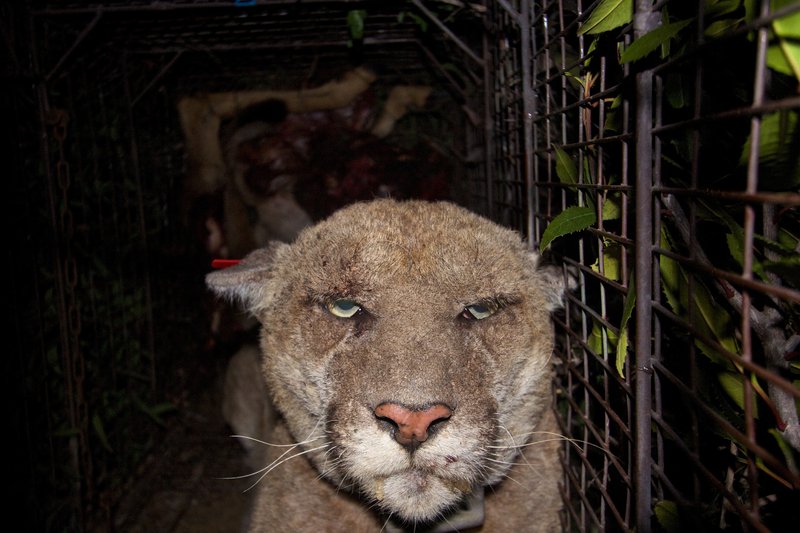For Immediate Release, March 20, 2023
|
Contact: |
Allison Ruff-Schuurman, Office of Assemblymember Laura Friedman, (916) 319-2044, allison.ruffschuurman@asm.ca.gov |
California Bill to Expand Community, Wildlife Protections Against Rat Poisons
Legislation Would Strengthen Toxic Rodenticide Restrictions
SACRAMENTO, Calif.— Assemblymember Laura Friedman (D-Burbank) is spearheading a bill to expand restrictions on toxic rat poisons and increase protections for children, pets and wildlife from unintentional poisoning.
The California Ecosystems Protection Act of 2023, or Assembly Bill 1322, would extend an existing moratorium on second-generation anticoagulant rodenticides to include a deadly first-generation anticoagulant rodenticide. The proposed legislation creates safeguards from the most toxic rat poisons until state regulators develop stronger restrictions for their use.
“Despite our hard work passing legislation to curb rodenticide use, California’s most iconic wildlife like mountain lions and eagles are still needlessly poisoned. We must do more,” Friedman said. “This common-sense bill will expand restrictions on some of the most dangerous rat poisons so we can better protect wildlife and families.”
In 2020 the state set a moratorium on certain uses of second-generation anticoagulant rodenticides by passing A.B. 1788. But wildlife deaths from rodenticides have continued, with more than half of wildlife tested in the state exposed to rodenticides.
Of the 40 mountain lions tested in the Santa Monica Mountains, 39 tested positive for rodenticide. In 2022 a pregnant mountain lion who was struck by a car and killed in Southern California had tested positive for rodenticide and so did her four unborn kittens. The late P-22, the Griffith Park mountain lion, also suffered from mange linked to rodenticides, and the Los Angeles County Board of Supervisors recently called for a statewide ban on first-generation rodenticides.
“There’s no better way to honor P-22’s legacy than by implementing sensible restrictions on toxic poisons that are harming mountain lions and other wildlife,” said J.P. Rose, Urban Wildlands policy director at the Center for Biological Diversity. “There are effective options that don’t poison wildlife and children, and we need stronger protections that steer the public to safer alternatives.”
A.B. 1322, which is sponsored by the Center and Raptors Are The Solution, includes exemptions for agriculture, water infrastructure, biotech and other sectors. The Assembly Committee on Environmental Safety and Toxic Materials will have a hearing on the bill March 28.
The proposed legislation adds diphacinone, a first-generation anticoagulant rodenticide, to the moratorium.
“Diphacinone is deadly to wildlife and can cause decreased immune system response leading to diseases like mange in bobcats and other animals,” said Lisa Owens Viani, director of Raptors Are The Solution.
Rodents that consume anticoagulant rodenticides are frequently consumed by other wildlife, resulting in secondary poisoning and poisoning of the food chain.
In addition to harming mountain lions, bobcats, hawks, spotted owls and other wildlife, rodenticides are dangerous to people. In 2021 there were more than 3,000 cases of human poisonings, including at least 2,300 involving children, according to the American Association of Poison Control Centers.
Less toxic rodenticides, fertility control and different types of traps are safer alternatives to address rodent infestations. For more information visit SafeRodentControl.org and raptorsarethesolution.org.

Laura Friedman represents the 44th Assembly District, which encompasses the cities of Burbank, Glendale, and Los Angeles, as well as the communities of La Crescenta, Lake View Terrace, Montrose, North Hollywood, Shadow Hills, Sherman Oaks, Sunland-Tujunga, Studio City, Toluca Lake, and Valley Village.
The Center for Biological Diversity is a national, nonprofit conservation organization with more than 1.7 million members and online activists dedicated to the protection of endangered species and wild places.
Raptors Are The Solution (“RATS”), a project of Berkeley-based Earth Island Institute, educates people about the dangers of rat poison in the food web and about the ecological role of birds of prey and other wildlife.

